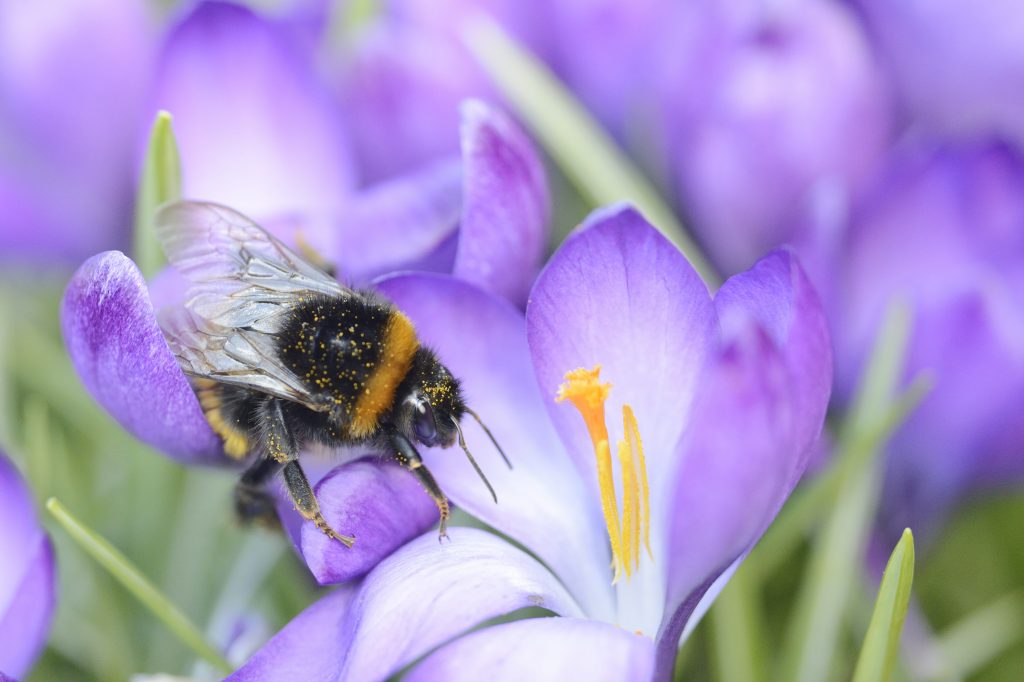A NEW report has praised Scotland for making strides in protecting vital pollinators such as bees and hoverflies.
Published by NatureScot, the report underlines the huge amount of work being undertaken by a wide range of organisations and individuals to implement the country’s 10-year Pollinator Strategy.
Launched in 2017, The Pollinator Strategy for Scotland sets out how the country can “continue to be a place where pollinators thrive,” seeking to halt and reverse the decline in the insects’ native populations that are massively important to our biodiversity.

The Covid-19 pandemic has presented these projects with ongoing challenges, but 2021 was still full of success stories, from creating “wild” spaces in schools to planting pollinator-friendly hedgerows and fruit trees.
After identifying the need for co-operation in a 2015 consultation, more than 30 organisations are thanked in the report for partnering with NatureScot and supporting the strategy.
The Scottish Government, RSPB Scotland, The University of Edinburgh and ScotRail are just some of the institutions that those implementing the plans say they are reliant on and grateful to.
Hundreds of volunteers also stepped up to the cause last year, hoping to protect the populations struggling for survival after changes in land use, diseases and climate change.
NatureScot Pollinator Strategy Manager Jim Jeffrey said: “This latest progress report comes on the back of Glasgow hosting COP26, and there is no doubt now that the twin challenges of climate change and nature loss are in the forefront of everyone’s minds.
“Scotland is doing its utmost to address pollinator declines and we are fortunate that so many individuals and organisations recognise their plight and are taking steps to help these vital insects.
“It’s particularly encouraging to see local authorities increasingly embracing opportunities to manage public spaces in a wildlife-friendly way, making space for nature by reducing mowing and planting for pollinators.”
The survival of these insects is so crucial because many plants depend on pollination to allow them to bear fruit, set seed and breed.
Should these plants suffer due to the lack of pollinators, the food sources and habitats of other creatures would be jeopardised, putting our natural ecosystem under severe threat.